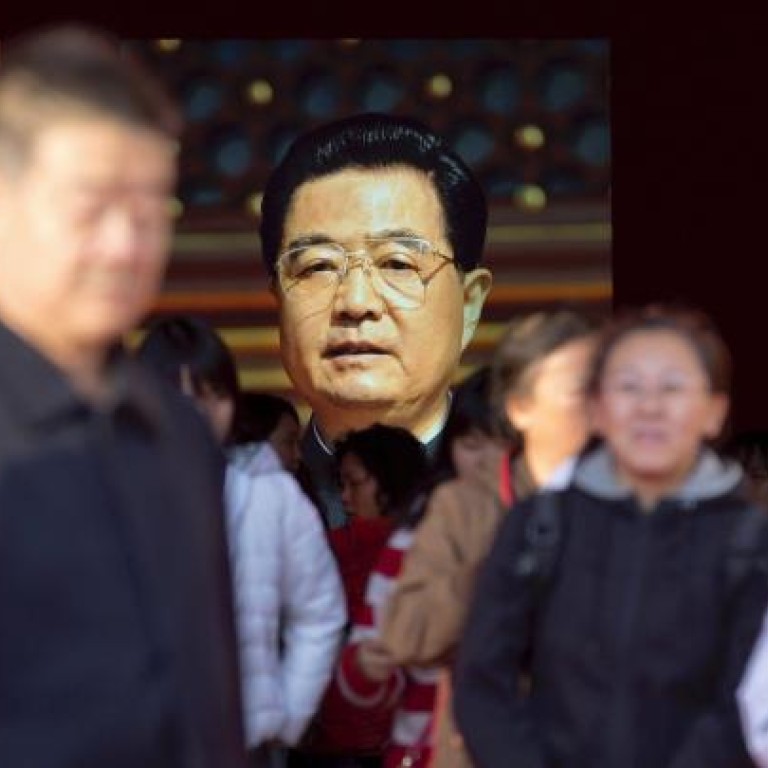Advertisement
Advertisement

Factbox: understanding China's 18th Communist Party Congress
China’s ruling Communist Party opens its 18th Congress on Thursday, a complicated political coronation that will install the country’s fifth generation of leaders. Here is how the process works and some pointers to what is at stake in this congress.
Agenda
- The five-yearly congress elects about 370 full and alternate members of the party’s elite Central Committee in a session lasting about one week, drawing from a pre-selected pool of candidates expected to be only slightly larger than 370.
- The new Central Committee’s first session, held the day after the congress ends, then selects some two dozen members of the decision-making Politburo, again drawing from a list of candidates already selected by the party’s leadership over months of political jockeying.
- The new Politburo Standing Committee, the party’s top echelon of power which currently has nine members, will then be unveiled after the one-day Central Committee plenum ends. It is widely expected to be shrunk to seven, facilitating decision-making needed to push through key reforms.
- A series of other appointments will also be made over the congress period, and in some cases before it. These include provincial party chiefs and governors and heads of some state-owned enterprises.
- Vice President Xi Jinping is set to take over as party general secretary from President Hu Jintao at the end of the congress. Xi then takes over as head of state in March at the annual full meeting of parliament.
- One uncertainty is whether Hu will also give up his job as military chief. His predecessor, Jiang Zemin, stayed on in that role for two years after stepping down as party chief.
Policies
- Hu will give a keynote report to the opening session of the congress, appraising the meeting of the party’s work over the past five years and mapping out challenges ahead for the next five years. Details of the speech remain a closely guarded secret ahead of time.
- The catchphrase in state media and among academics ahead of the congress has been “reform”. China experts say that unless the new leadership pushes through stalled reforms, the nation risks economic malaise, deepening unrest and ultimately even a crisis that could shake the party’s grip on power.
- Advocates of reform are pressing Xi to cut back the privileges of state-owned firms, make it easier for rural migrants to settle permanently in cities, fix a fiscal system that encourages local governments to live off land expropriations and, above all, tether the powers of a state that they say risks suffocating growth and fanning discontent.
- There may also perhaps be cautious efforts to answer calls for more political reforms, though nobody seriously expects a move towards full democracy.
- The party may introduce experimental measures to broaden inner-party democracy - in other words, encouraging greater debate within the party - but stability remains a top concern and one-party rule will be safeguarded.
Venues and duration
- State media have not said how long the congress will last, but the 17th Congress in 2007 went on for about a week.
- The delegates will convene at Beijing’s cavernous Great Hall of the People for full sessions, but most group meetings - where delegates will discuss Hu’s report and the list of candidates - will take place behind closed doors at the Jingxi Hotel in western Beijing.
Delegates
- The party was founded at the first congress in Shanghai in 1921 when 13 delegates, including a young Mao Zedong, represented the less than 60 Marxist activists nationwide. The party swept to power in the 1949 revolution after a bloody civil war.
- The 18th Congress is a gathering of China’s most powerful people: incumbent state leaders, cabinet ministers, top military generals, provincial party chiefs and governors, mayors of major cities as well as managers of large state-owned enterprises and state bankers.
- A total of 2,270 delegates were selected to attend this year’s congress.
- About 30 percent of the delegates were carefully selected by regional officials as “grassroots” role models from all walks of life, including farmers, workers, teachers, doctors and scientists. The party has more than 82 million members.
- Celebrity delegates include Mao Zedong’s grandson, Mao Xinyu, and women’s badminton Olympic gold medallist Zhao Yunlei.

Post